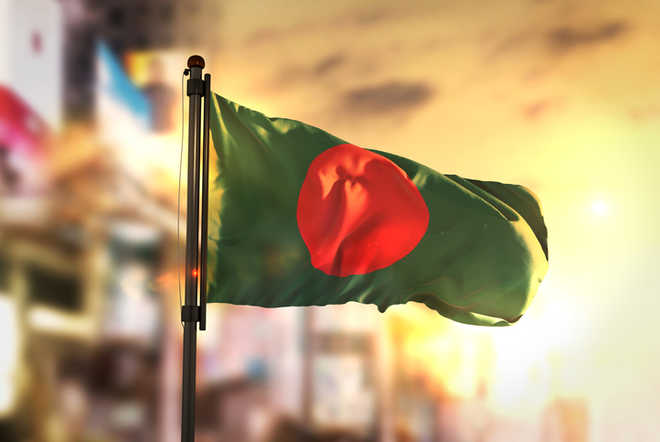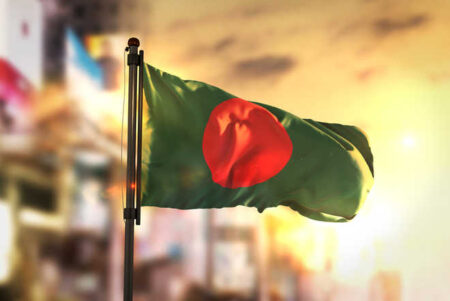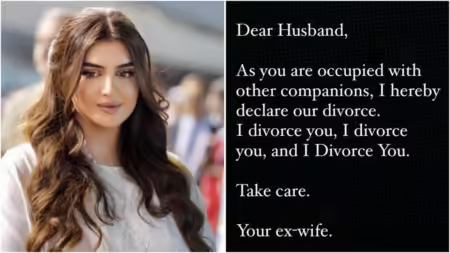The Great protest by students in Bangladesh 2024 has been seen now a days.As student protest against a “Quota” for jobs escalate into violence in Bangladesh, a look at the term “Razakar” and its negative connotations associated with the atrocities committed during the Bangladesh Liberation War by Pakistan and its enablers.
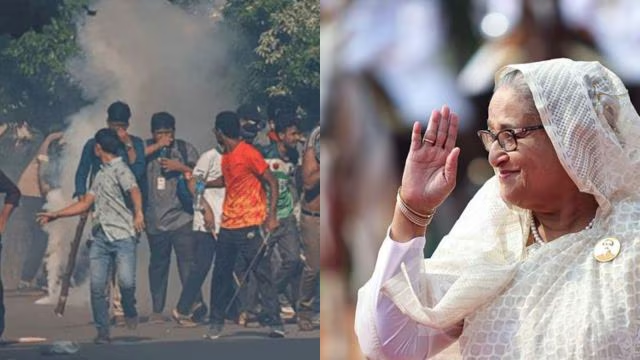
All it took was a statement by Bangladesh’s Prime Minister Sheikh Hasina referring to Razakars, for the Ongoing student protests to escalate to violence in the country, resulting in widespread clashes between the ruling Awami League’s student wing and protestors.
Since July 1, thousands of university students in Bangladesh have been staging protests against a recruitment system that they say is discriminatory and favours children and grandchildren of war heroes of the Bangladesh Liberation War, for high-paying government jobs. The protesters are calling for recruitment to be based on merit.
Presently in Bangladesh, a third of these government posts are kept for the children of those who fought to win the country’s independence in 1971. Some of these posts are also reserved for women, ethnic minorities and the disabled.
During a press conference at Hasina’s residence on July 14, when the prime minister was asked about the student protests, she responded, saying: “If the grandchildren of freedom fighters do not receive (quota) benefits, who would get it? The grandchildren of Razakars?”
Angered by the statement, the protesting students shot back: “Tui ke? Ami ke? Razakar, Razakar! (Who are you? Who am I? Razakar, Razakar!)”.
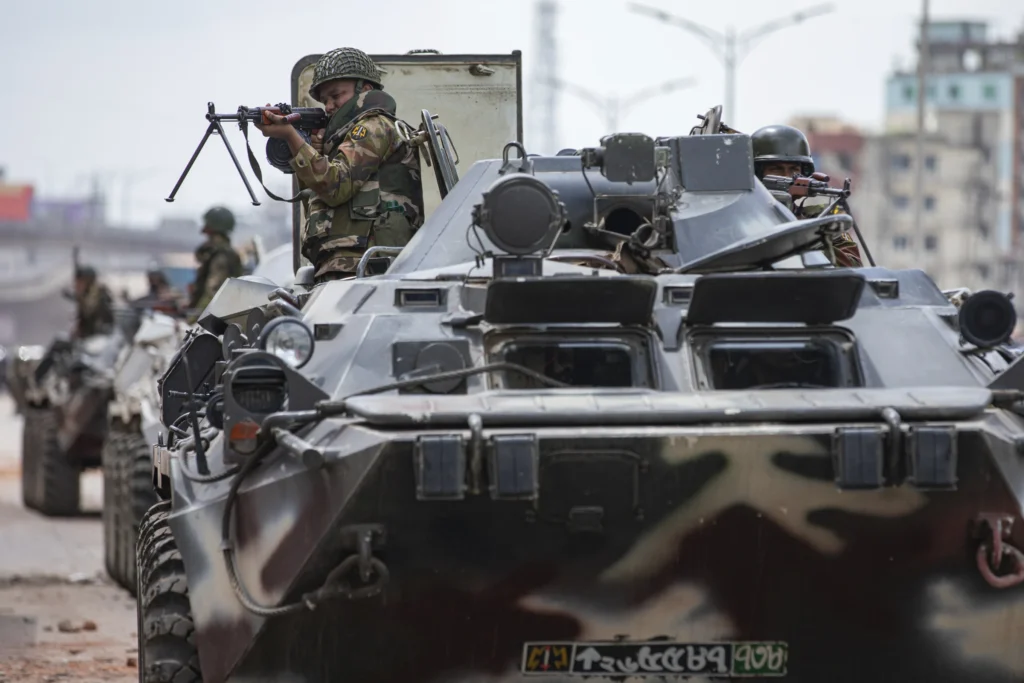
Great Protest by Students in Bangladesh 2024:
The history of the Razakars:
Hasina’s remark was a sarcastic, rhetorical question, asking whether the grandchildren of Razakars should get quota benefits when it comes to jobs in Bangladesh, says an Awami League supporter interviewed for this report, requesting anonymity. But it further triggered anger among students, escalating an already tense situation.Great Protest by Students in Bangladesh 2024
The term ‘Razakar’ is considered to be derogatory in the country and is associated with atrocities committed during the Bangladesh Liberation War, also known as the Bangladesh War of Independence in 1971.
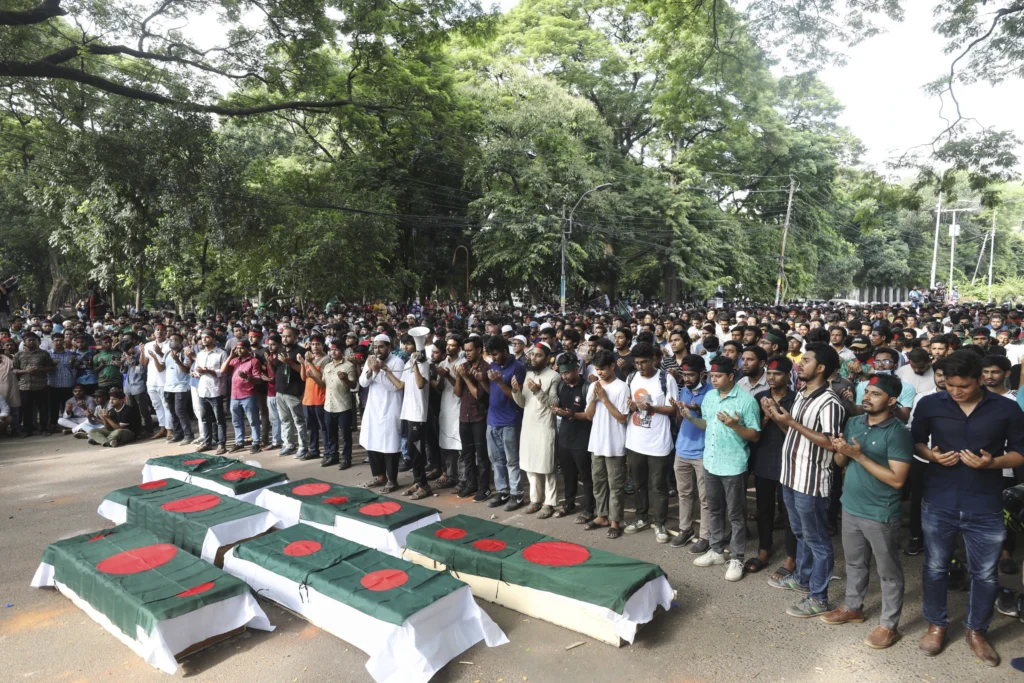

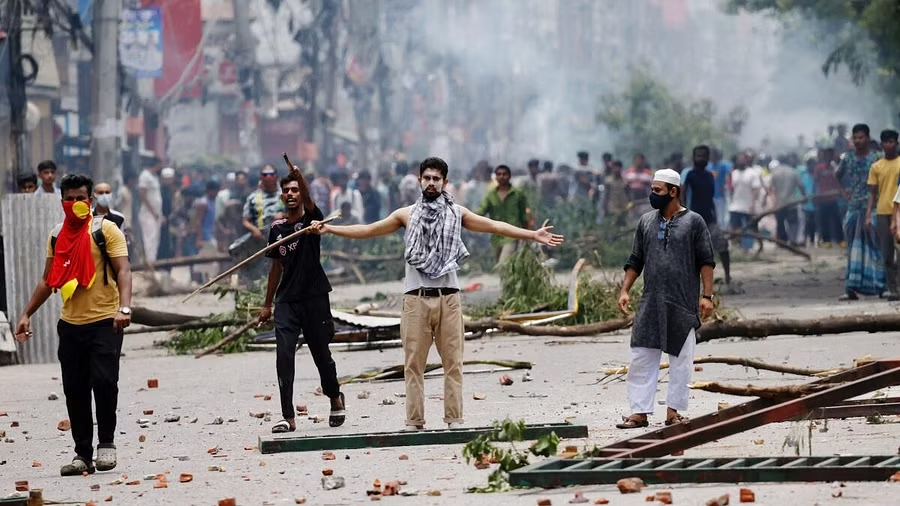
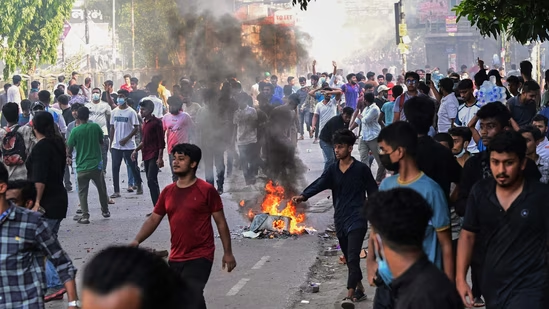
what was then East Pakistan:
In what was then East Pakistan, the Pakistan Armed Forces, backed by radical Islamists, created three main militias to suppress civil liberties, civil disobedience, target freedom fighters, and terrorise civilians: the Razakars, the al-Badr and the al-Shams. These militia groups, with the support of the Pakistan Armed Forces, subjected Bengalis to genocidal rape, torture, murder and forced deportation, among other forms of violence and abuse.
“The word is actually ‘Rezakar’ and it can be traced to Hyderabad (modern-day India). They were essentially ‘volunteers’,” said Dr Muntasir Mamoon, Bangabandhu Chair at Bangladesh’s Chittagong University, a leading expert on the Bangladesh Liberation War and Sheikh Mujibur Rahman, the founding leader of Bangladesh.Great Protest by Students in Bangladesh 2024
In India, the Rezakars were a paramilitary volunteer force and home guard in the princely state of Hyderabad that resisted integration with India post-1947. A brainchild of Majlis-e-Ittehadul Muslimeen leader Bahadur Yar Jung, the Rezakars grew under the leadership of Qasim Rizvi. In 1948, after the defeat of the Rezakars in Operation Polo by the Indian Armed Forces, Rizvi was forced to emigrate to Pakistan.
In May 1971, Maulana Abul Kalam Muhammad Yusuf, a senior member of the Jamaat-e-Islami, formed the first team of Razakars with 96 members of the Jamaat in Khulna. “In Bengali, the term ‘Rezakar’ became ‘Razakar’. The Razakar comprised Biharis and poor people who were socio-economically deprived. They became informants for the Pakistan Army and had weapons to fight against the Mukti Joddha (pro-independence freedom fighters). Among the Anti-Liberation forces, there were many groups and the Razakars were one,” said Dr. Mamoon.
The Biharis were Urdu-speaking migrants who had migrated to East Pakistan between 1946-1947. They supported the Pakistan Armed Forces and maintained a pro-Pakistan stance, opposing the independence of Bangladesh, as well as the language movement of the Bengali Muslims.
A provocative word Razakar:
Some five decades after Bangladesh achieved independence from Pakistan, the term ‘Razakar’ continues to provoke. “Even now, if you are the son of a Razakar, people will say ‘you are a Razakar’s son’. But even a poor man whose father was a freedom fighter will say that he is the son of a hero with pride and will be admired. Calling ‘Razakar’ a slur is a mild adjective for the actual connotation,” explained Dr. Mamoon. The term ‘Razakar’ is not a badge of honour in modern-day Bangladesh in the context of its pre-independence history.
The protesting students, already angry with the Hasina government, only became more enraged after hearing the term ‘Razakar’ in the PM’s July 14 address. In protest, they came up with several different slogans to deride Hasina’s statement:
While one was: “Tui ke? Ami ke? Razakar, Razakar!” (“Who are you? Who am I? Razakar, Razakar!”)
Another was: “Chaite gelam odhikar, hoye gelam Razakar.” (“I went to ask for rights; instead became a Razakar.”)
Soon after, at the signing ceremony of the Annual Performance Agreements for the 2024-25 fiscal year at the Prime Minister’s Office in Dhaka, Hasina addressed the new set of slogans where the word ‘Razakar’ was used by the protestors, calling them “regrettable”.
“They don’t feel ashamed to call themselves Razakars…They do not know how the Pakistani occupation forces and Razakar Bahini had resorted to torture in the country—they did not see the inhuman torture and bodies lying on the roads. So, they don’t feel ashamed to call themselves Razakar,” she said.
“Our only target is to establish the spirit of the Liberation War. Hundreds of thousands of martyrs shed blood while hundreds of thousands of our mothers and sisters were raped. We won’t forget their contribution. We have to keep it in mind,” Hasina said.
She pointed to her government’s work in addressing war crimes committed during Bangladesh’s freedom struggle, saying that her government had taken “legal action against the war criminals, who were involved in mass killing, looting, the violation of women, forming the Razakar Bahini and Peace Committee and giving these Bahinis firearms,” a report by Bangladeshi newspaper Prothom Alo said.
The newspaper quoted Hasina saying that it was “most unfortunate” to hear the “slogan from the girls that they are ‘Razakars’ despite the fact that the women were badly raped by the Razakars during the War of Liberation in 1971”.Great Protest by Students in Bangladesh 2024
“I felt sorry when I heard yesterday the students of Ruqayyah Hall calling themselves Razakars. Do they know what had taken place there on 25 March, 1971? Some 300 girls were killed and 40 girls were raped and taken to the Pakistani camps,” Prothom Alo quoted PM Sheikh Hasina saying.
According to the report, Hasina said the women students using the slogans calling themselves ‘Razakar’ had not witnessed the violence and oppression of 1971 carried out by the Pakistani occupation forces. “So, they don’t feel ashamed of calling themselves Razakars,” PM Hasina was quoted saying.
The use of the word ‘Razakar’ by Sheikh Hasina was irresponsible, said Wahiduzzaman. It was also misunderstood by the protesting students, said an Awami League supporter interviewed for this report, who requested anonymity. “Sheikh Hasina was not calling the students Razakar,” the Awami League supporter said.
Bangladesh violence: 32 killed, hundreds injured. Why are students protesting? What are the demands?
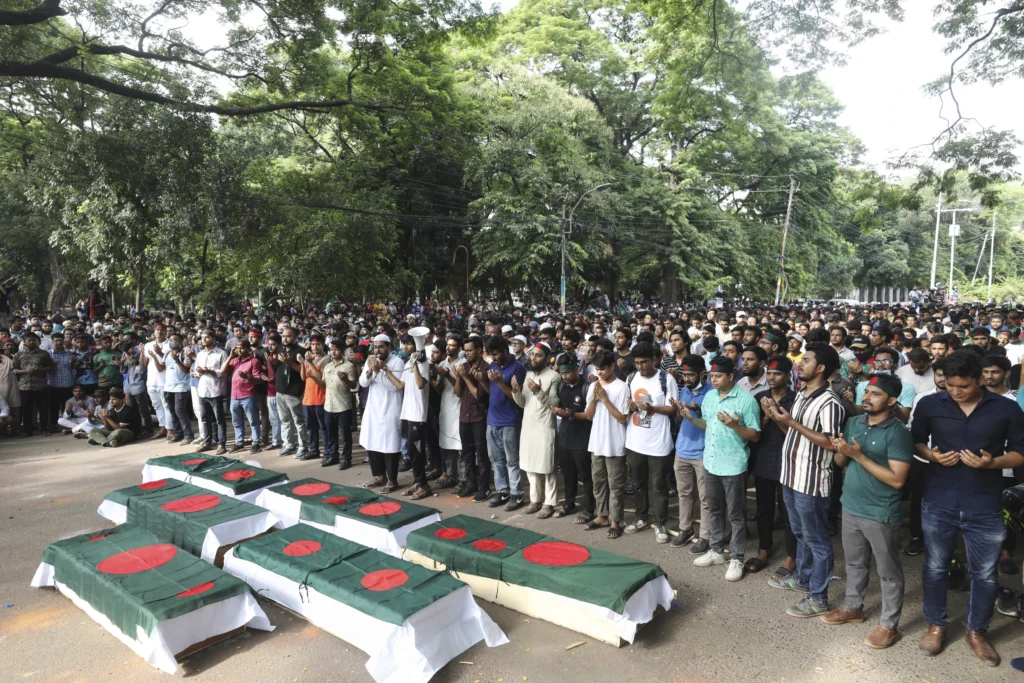
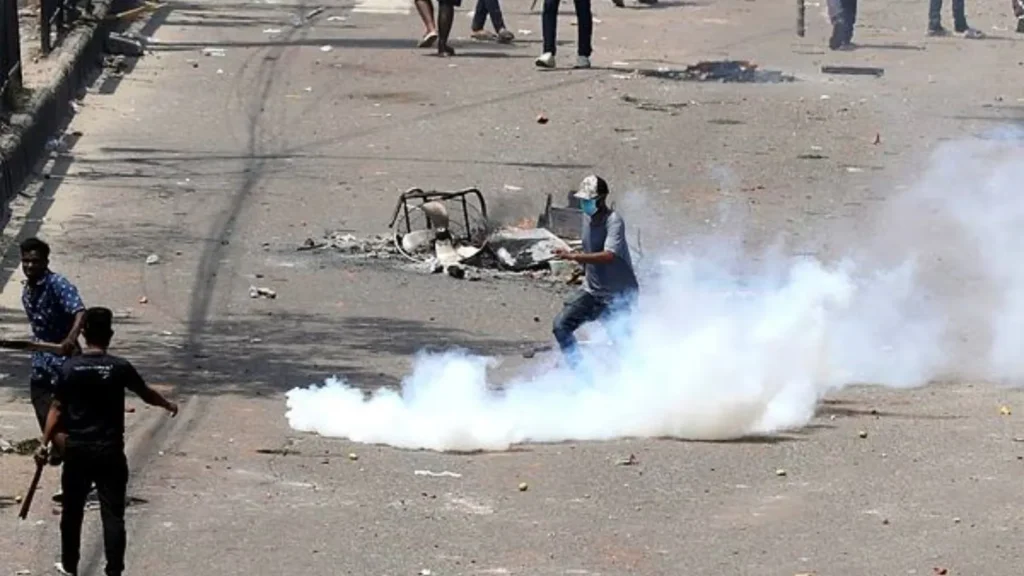

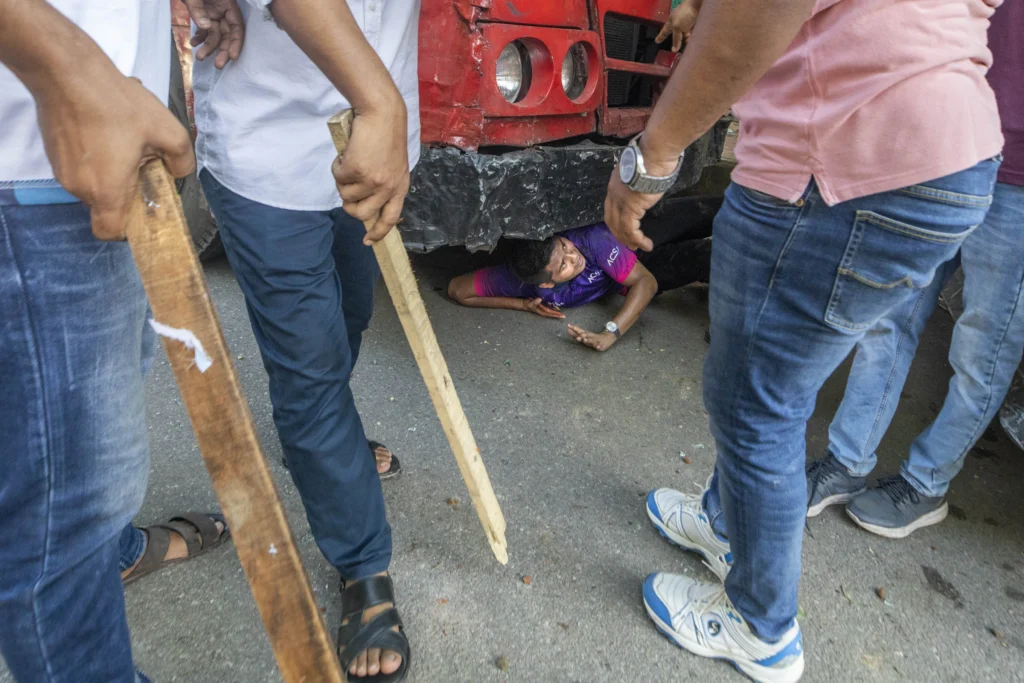
At least 32 people have been killed, and over 2,500 are injured in Bangladesh as violence escalated during student protests who are demanding Quota system Reform for government jobs. On Thursday, the protests took an even ugly turn as the demonstrating students set fire to the country state broadcasting, a day after Prime Minister Sheikh Hasina appeared on the network seeking to calm the escalating clashes.
Hundreds of university students in Dhaka and other cities have been holding rallies for weeks, protesting the system of reservation in public sector jobs, including that for the relatives of war heroes, who fought for the country’s independence from Pakistan in 1971.
What is the quota system?
The quota system in Bangladesh has undergone several changes since it was introduced in 1972. The system covers groups such as freedom fighters’ families, with women and those from underdeveloped districts receiving a share of a tenth each. Five per cent is allotted to Indigenous communities, and one per cent is allotted to the disabled, reported Reuters.
When the system was abolished in 2018, reportedly, 56 per cent of government jobs were blocked under various quotas.
The protesting students fear that the quota shrinks the number of government jobs open for all, hurting aspirants who want them filled on the basis of merit.
What has Sheikh Hasina-led Bangladesh government said?
On Thursday, Bangladesh law minister Anisul Huq expressed willingness to hold talks with the protesting students after fresh violence erupted across the country.
“Whenever they agree, we will sit…it could be held this (Thursday) afternoon even…Government has agreed to hold talks with the quota reformists,” he said, as quoted by PTI.
Meanwhile, Hasina condemned the loss of lives and called for patience until the Supreme Court delivers its verdict.Great Protest by Students in Bangladesh 2024
(With inputs from agencies)

